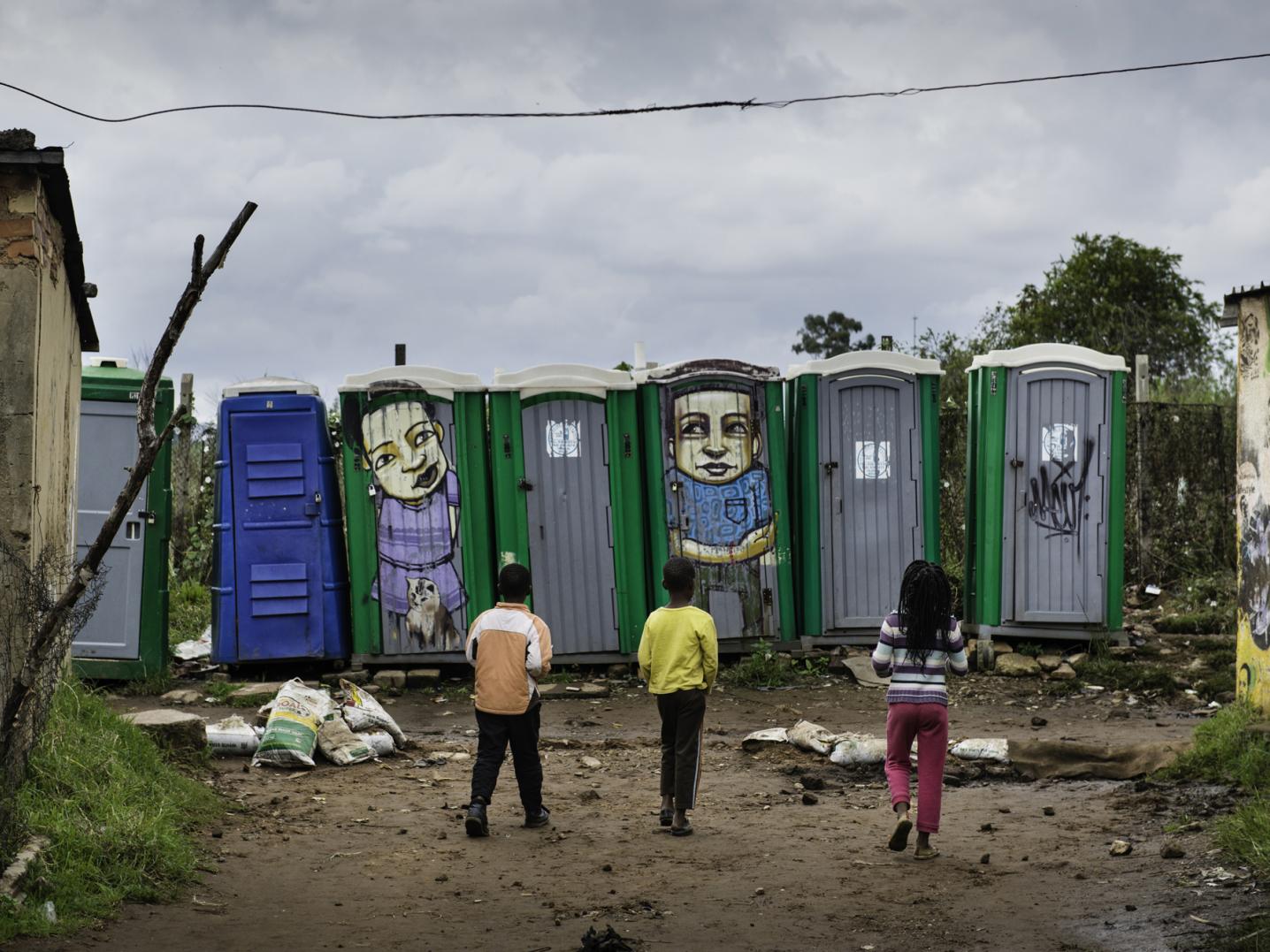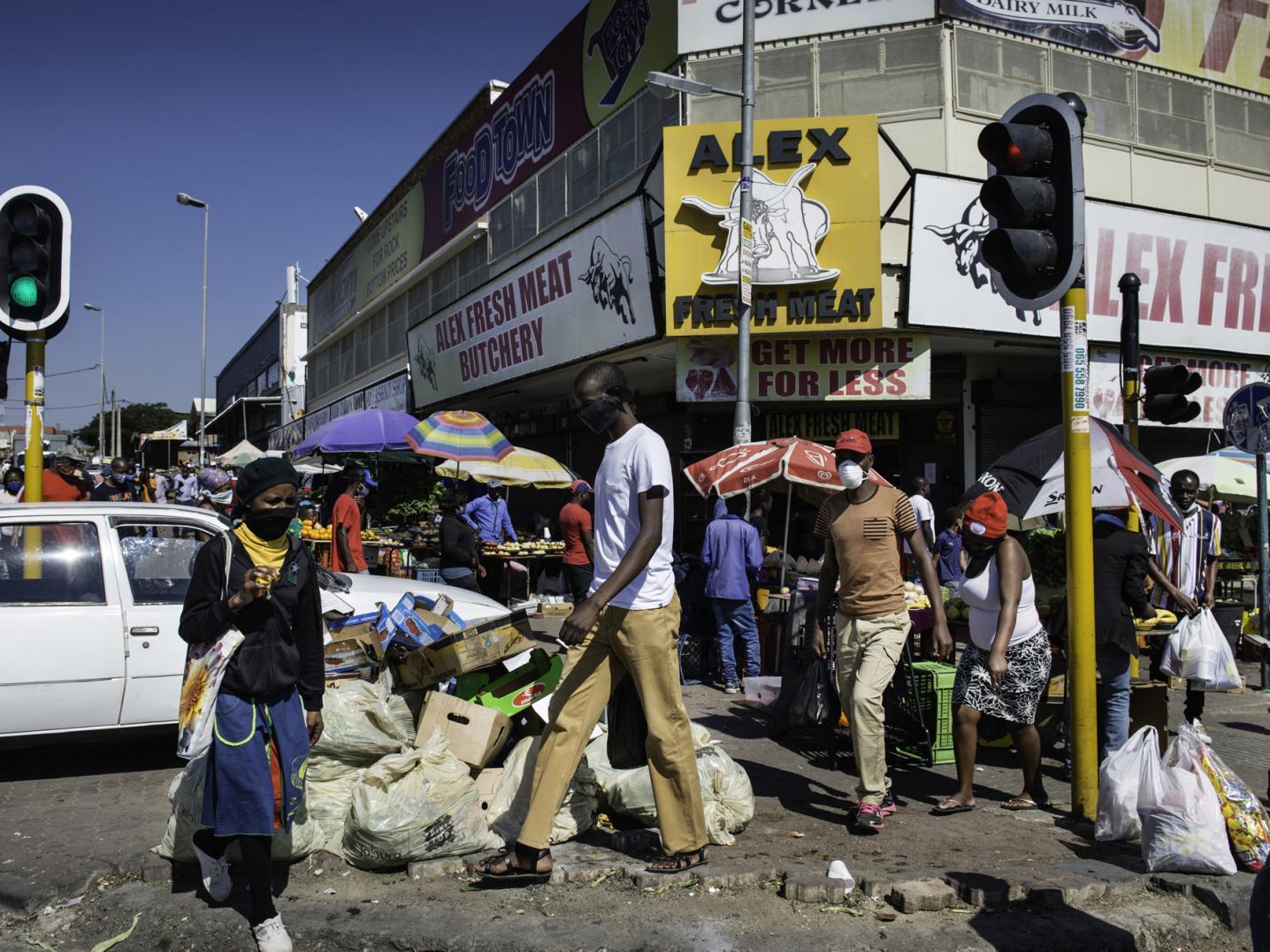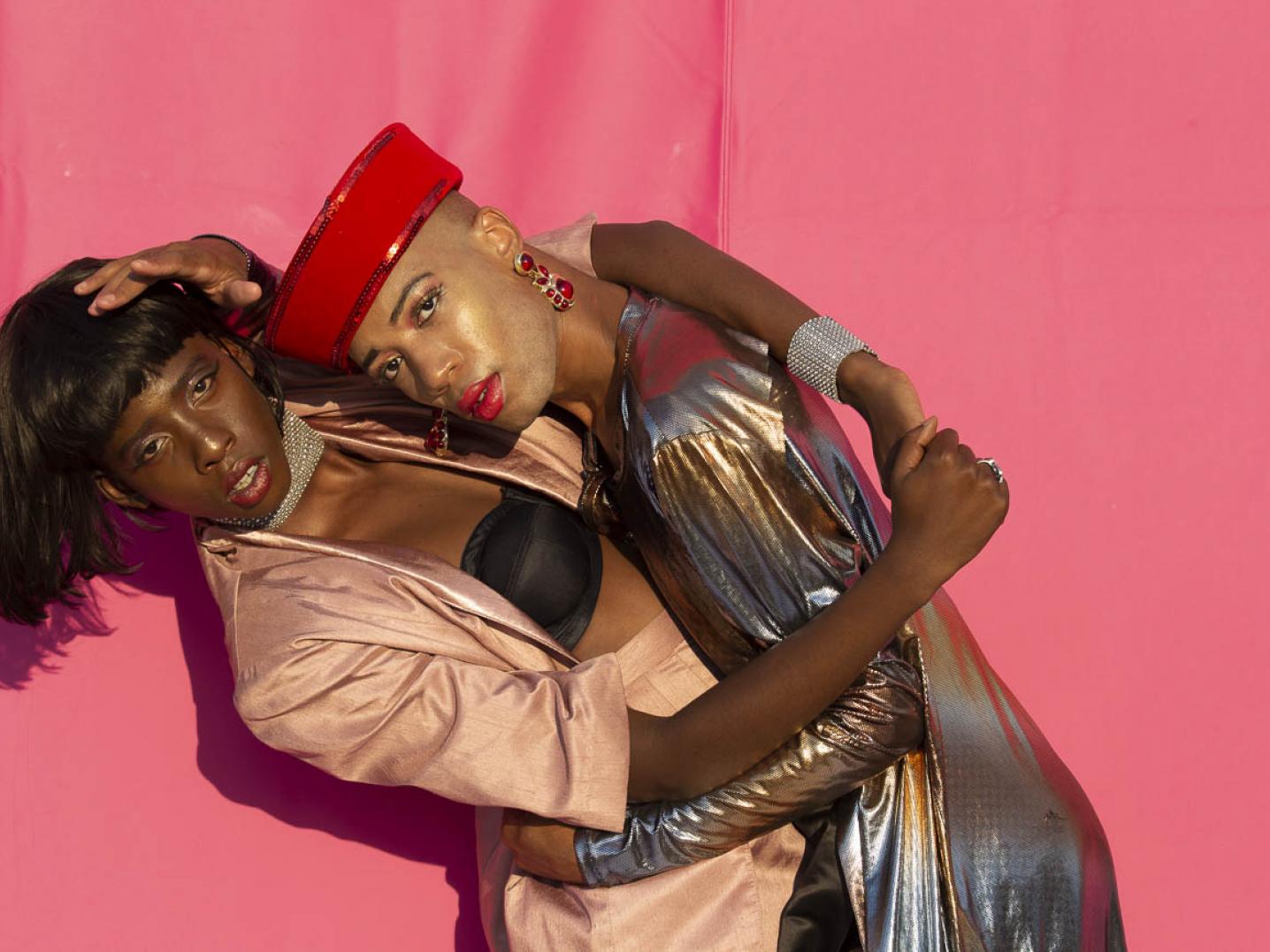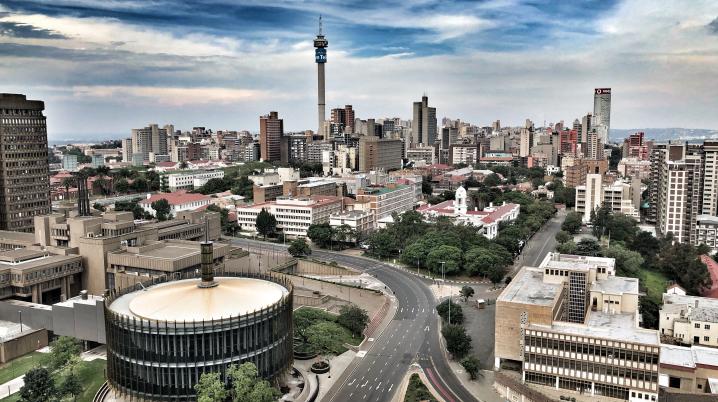
On June 18th, artists, journalists and professionals from different backgrounds connected through Zoom for a conversation from Pakhuis de Zwijger led by moderator Zoë Papaikonomou, joined by the organiser of the AfroVibes Festival. From Johannesburg, the participants reflected on their city with stories of their challenges, resilience, and lessons learned from the COVID crisis. (Video below)
Johannesburg, the largest and wealthiest city in South Africa, is emerging from one of the most stringent lockdowns seen in the world. Most notably there was a ban on cigarettes and alcohol sales in order to promote healthy lungs and minimise the risk of domestic violence. Since early June the lockdown has gone from Level 5 to Level 3; legalising sales of the aforementioned products and partially lifting the curfew and movement restrictions. The latest official figures list 1,625 deaths in South Africa from coronavirus. There are 76,334 registered infections, of which over 12,000 are in Gauteng, the province of Johannesburg.
It is expected the corona crisis will hit the arts and creative sector of Johannesburg even harder than the sector in other global cities. Mainly because venues for entertainment and the arts will remain closed regardless of the lockdown level. It is likely the lockdown will only be completely abandoned when a vaccine or effective treatment will be in place. With the little governmental support for the arts and the long time it could take before restrictions are lifted, the creative scene faces a challenging future.

Confusion
Reflecting on the situation in general, the conversation began with two journalists. Lynsey Chutel, an independent journalist based in Johannesburg: “We are slowly relaxing our lockdown levels, but the rules change often, which causes a lot of confusion. Children who attend public schools were told to go online for their education, but the majority of children in South Africa doesn’t have internet. And so what we’re seeing, unfortunately, is that COVID-19 is exacerbating a divide. There is an unemployment fund for people who have lost work and business due to COVID-19, but many are still struggling to gain access to that aid. I do know of young people in Soweto who have started their own outreach programs, because the food parcels promised by the government never arrived. This is a fairly typical South African response – when things don’t work out as planned, civil society steps in.”
Niels Posthumus, South Africa correspondent for Dutch newspapers Trouw and Het Financieele Dagblad: “Johannesburg is a city divided. There are the rich, predominantly white suburbs, and the poor townships, with even poorer slums. Here, there can be ten to fifteen people living in a single shack with no running water. Washing your hands is a luxury and social distancing is problematic. This makes tackling the corona crisis complex, because you need to take different measures in different areas of the city. But the fact that the city is divided also has an upside. Interestingly, the virus was more prevalent in the richer areas, because those were the people travelling, who brought the virus to South Africa. When I was reporting during the hard lockdown in April, I witnessed the police trying to close the townships off from the outside world. And I think this was to contain the virus in the richer areas, where it’s easier to control.”

Change of perspective
Moving to the specific situation for people working in the arts, Zoë Papaikonomou spoke with Ismail Mahomed, CEO of the Market Theatre Foundation: “When the country went into lockdown, all art institutions had to close down. The majority of South African artists are freelance, which means that we have a large number of people who are suddenly left with no income and a great deal of uncertainty. The government announced an artist relief fund, but many people have yet to receive any funding. And even though venues are slowly beginning to reopen, this isn’t viable for non-subsidised theatres. Still, we are beginning to see artists finding new ways to produce work. The work presented online is gradually being refined and I believe this will develop into its own genre. It will never be a replacement, but it could run parallel to theatre in the post-COVID period.”
New ideas seem to be paramount. Jamal Nxedlana, a visual artist and image maker based in Johannesburg: “I photograph outside and use natural light, working with actors and models. Recently, I have been forced to take a break, because of the restrictions and because a lot of work was cancelled. So in a way I was forced to stop and reflect on my work: what does it mean, what is it about and where is it going?”

Shifts within the art sector
Kirsten Harris, a theatre maker, art educator and director of theatre production Born Naked and others: “The crisis has obviously shifted our work quite dramatically. It’s been a challenging time, especially for independent artists. We’ve had to migrate to working digitally, and we’re still trying to figure out what that form is. We’ve used this time to try to pause, listen, engage, connect and respond to the environment around us. And even though things have been taken away from us, the digital space has also given us new opportunities. I can connect with international artists that I wouldn’t have been able to work with before. This has been really exciting and positive. There are many obstacles, opportunities and challenges. But as independent theatre makers we will always find a way to survive.”
Keitu Gwangwa, head of the Windybrow Arts Centre in Johannesburg: “As a theatre space that is open to young people, we had to shut down. We’ve moved a lot of conversations online, using tools such as Zoom, but it’s not the same. When you have symposia and dialogues, you really depend on that intimacy and immediate response from the audience. Without that engagement and energy to tap into, it changes how we view the arts. Artists are not priority workers, but we need to change the perspective by realising that artists can be utilised to send messages and engage the public. Art crosses all barriers, and artists can communicate and speak about COVID-19, to get people on board and help them understand what we are facing. This is just one of the ways the industry can be empowered.”
Bob Meijs, co-founder of the Dutch/African Afro_Vibes Festival: “South Africa is a fierce country where social issues and major inequalities are often expressed in the arts. Artists have the urge to really say something, because there is a sense that what you do can make a genuine difference: as an individual or artist, you can be an element of change.”
Long-term effects
Summarising, the participants were asked what they thought the long-term effects of the crisis will be. Ismail Mahomed: “The arts in South Africa is very resistant. During apartheid and the international cultural boycott, we were able to create a very unique artistic voice. And now, one of the greatest ironies is that while we are physically disengaged from each other, we have an incredibly powerful digital connection with partners across the globe – something we never could’ve imagined. Ultimately, this will result in a much more enriching cultural experience. We’ll be seeing a lot more innovation in our theatres in terms of how we connect with the digital space. It’s not just for now – it’s here to stay.”
Bob Meijs: “What is really important for the future is international collaboration – despite the fact that borders are closed, flights have ground to a halt and there are restrictions everywhere. Because what this pandemic shows us, is that we are all connected. International collaboration is key – across national borders and across cultural borders.”
Lynsey Chutel: “It’s a bit early in the pandemic to say where we’ll end up, because it’s shaking up everything. It has exposed what we’re doing wrong, but listening to everyone today has made me hopeful that it has also exposed what we’re doing right. And if we continue this global community, ultimately it will make us stronger. Perhaps the greatest opportunity is that this really forces us to pause. To ask ourselves, if we are going to rebuild the world after this pandemic: what will that world look like? Hopefully we will have a greater sense of awareness.”



